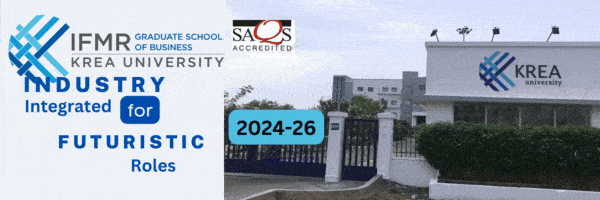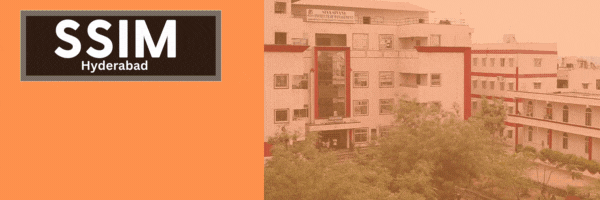One of the burning issues management institutes at all levels have been facing since ages – is the crying need to sync theoretical classroom teaching with industry-relevant lessons and practices.
The importance of industry-relevant teaching in management studies in the B Schools cannot be overstated. In today’s fast-paced and ever-changing business world, it has become more important for MBA / PGDM graduates to have the skill sets and knowledge that can equip them to survive, perform, achieve, excel at a professional and personal level, overcoming the challenges.
However, when there is a huge deficit and inadequate number of faculties with business exposure or industry experience, in the management institutes offering MBA/PGDM, how can the teaching/learning outcome be expected to be practical, business relevant, and beyond theory?
The problem has been acknowledged by institutes, thought leaders and authorities for a long, and has been occasionally discussed too. However, since the prime concern has always been good placements, which continues to attract students, who in turn are strongly influenced by the placement performance of the brand, the focus on campus placement was more important than equipping the student for the rest of the career.
One of the B School’s faculty even went to the extent of saying that management institutes today act like sophisticated placement agencies.
Towards this, the UGC has taken a new initiative to bring the industry and other professional expertise into the academic institutions through a new category of positions called “Professor of Practice” (POP) with the intent of bringing the real world of experience and practices inside the classrooms. The National Education Policy (NEP) 2020 seeks to transform higher education by focusing on skill-based education to meet the needs of the industry and the economy. READ Below..
Mapping of Efforts by ‘Professor of Practice’ along with Classroom Theory
We spoke to two very outright, straightforward professors from two different institutes, who interacted without reservations, on this topic and also on the approach taken by UGC through the new category of positions “Professor of Practice” (POP) to bring in business practices inside the classrooms, which many B-Schools and IIMs are already in the process of adopting.
Dr. Pramod Paliwal, Professor-School of Management, PDEU, Gandhinagar-Gujarat, and Dr. Dwarika Uniyal, Pro Vice Chancellor, RV University, Bengaluru, share their hard-hitting perspectives while responding to a few not so easy questions by Suchandra from Campusutra on “Professor of Practice “ and its impact on the HEIs.
Q 1. Campusutra : Will the inclusion of a new category of position/s called “Professor of Practice (POP)” as part of UGC’s new initiative be enough to bring the industry and other professional expertise into the academic institutions? Will it achieve the set objectives?
Dr. Pramod Paliwal: It is a good idea to bring practice into classroom teaching at B-Schools. However, we must remember the reasons behind this policy. This stems from a fundamental anomaly that many B-Schools are afflicted with; most B-School teachers lack considerable field experience in their respective functional areas. Can a medical teacher excel without substantial patient experience? For that matter, an excellent law school teacher should have good experience appearing in courtrooms. Most B-School teachers are happy being Professors of ‘Theory’ with impunity rather than that of ‘Practice.’ Moreover, given the ranking and appraisal systems, they are not even inclined to write business cases (something that simulates field experience). Instead, they seem to enjoy their closed ecosystem of theoretical research papers and citations – hardly significant to the students or industry. Ironically, most of the B-School teachers’ research papers are of no applied value to their organizations also! Here, the UGC’s ‘Professor of Practice’ policy brings a lot on the table.
Dr. Dwarika Uniyal : It is a good initiative however, it lacks a detailed understanding of how teaching learning happens in a university in general or specifically in a business school. Questions to be asked about how is the curriculum framed, what is the breakup of concept and context and if we are bringing PoP to supplement the PoT’s teaching to provide relevant skills or industry context then it needs to be co-created and work needs to be divided. More often than not PoP and PoT don’t meet at all and do their job independently which defeats the purpose. Also while PoT lacks industry understanding and experiences, PoP is not grounded in Theory and lacks teaching skills and with no exposure to pedagogy/andragogy. They might know their domain but linking it to the conceptual framework requires years and years of training. They are mostly good for guest lectures but lack the rigour and discipline of teaching, evaluations, and gradings as well as are not exposed to other disciplines.
Q2. Campusutra : Engagement of POP in Higher Education Institutions (HEIs) is on a fixed term basis (initially for 3 years + 1 additional year max) that too on a need/requirement as assessed by the respective HEI – Was this framed with the purpose of bringing an equitable balance “between the teaching methodology of POPs and the existing Professors banking primarily on theory”?
Dr. Pramod Paliwal: Yes, I agree that this policy has been introduced to bring an equitable balance “between the teaching methodology of POPs and the existing Professors banking primarily on theory and concepts. At the same time, I believe that with gradually all B-School core faculty coming with a respectable field experience (either pre-academia industry stint or post-academia industry stint through sabbaticals etc.), this equitable balance will be sustainable. However, I must also add that utilizing the immense benefits that seasoned industry professionals bring (in the form of Professor of Practice) is always a welcome step.
Dr. Dwarika Uniyal : It is a half baked policy. First and foremost, the institute/university has to find the fine balance between theory and practice. Plus, the PoP needs to adjust to the ground realities of academia. They might have passion to teach but are not ready for the grinding academia needs. Most often than not they are not trained teachers so require handholding on various aspects of student learning including evaluations and grading. HEI’s need to create a pool of PoP and make them work with PoT and enable an environment of mutual trust and respect. Three years is a too short a period to gain anything out of it as most UG programmes are 4 years. The PoP has to finish a complete academic term to get used to the new realities of academia. Considering the fact that PoP will not be doing any research, and focus only on teaching, this will be counter productive in longer run as they are no longer in the field and hence all they have is memory of an experience rather than true experience which they wish to bring to the classroom. If they are not creating new knowledge via any kind of research then they are not going deeper in the discipline and engaging in thinking and reflection. This will impact their performance in the class as students will be bored of the wartime stories they will tell. Giving a guest talk for 90 minutes to students is one thing and engaging students for 30 such 90 minute sessions is another.
Q3. Campusutra : The guideline on POP says “Formal Academic Qualification” is not considered essential. Will this be well accepted in the arena of educational elites?
Dr. Pramod Paliwal: We all must think beyond our closed world of Ph.D./research paper publication/theoretical projects etc. The world has changed beyond recognition; thus, there must be a humble acceptance of the need to selectively do away with so-called formal qualifications. Moreover, the touchstone for POPs success ultimately should be the skill-building of students and the industry’s acceptance of the same.
Dr. Dwarika Uniyal : I feel it is important to have relevant academic qualifications along with relevant experience even if they don’t have a PhD. I would urge PoPs to enroll themselves in Practice PhD/Exec Ph.D./EFPM if they wish to make this shift. I have mentored many such corporate executives in the past during their Phd journey and it is very useful and fulfilling for them and certainly helps them in the transition. It is certainly desirable if not mandatory. It is not about acceptance from the elite, it is about respecting the rules of the game as they are playing a different one now.
Q4. How encouraging will just a Consolidated amount (Both for Full Time or Part Time Engagement) as remuneration be for POP’s association with the HEIs? What steps can be suggested to make it more attractive for Industry – academia collaboration?
Dr. Pramod Paliwal: The issue of compensation is secondary, as many industry professionals thinking of joining academia will not do it necessarily for monetary benefits. At the same time, there has to be a fair calculation of the opportunity cost of their time and effort. As academia and industry gradually progress with this experiment, the scope for revisiting the aspect of compensation should always be kept open.
Dr. Dwarika Uniyal : Academia is a poor pay master and hence needs to change its revenue/profit structure to be competitive. I think for PoP’s they can make it better by allowing them more consulting, and MDP income. It should be comprising of fixed pay plus revenue share from MDP/Consulting and other activities like research centers doing a startup with students and having a stake in it. I think PoP’s can make more money if they are allowed and HEI’s are more creative in their arrangements with them.





